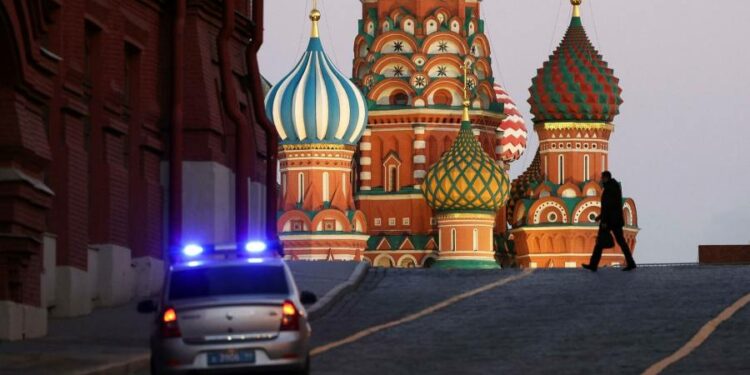H2O Asset Management’s flagship fund carried a bet on the Russian rouble that was equivalent to nearly half of its assets just weeks before Vladimir Putin launched his invasion of Ukraine.
H2O, an investment firm that is under investigation by multiple financial regulators, took big bets on Russia that have battered its funds in the past week. The asset manager’s €1.4bn Multibonds fund lost more than 15 per cent in a single day on Monday, as an unprecedented round of international sanctions threatened to cripple swaths of Russia’s economy and sent its currency spiralling lower. The fund is also down 28 per cent from mid-February.
Multibonds had exposure to the Russian rouble through derivatives that were equivalent to 48.3 per cent of it assets on January 31, according to a portfolio summary issued to investors. The snapshot of the fund’s positions, taken just weeks before Russian tanks crossed the border into Ukraine, also shows the fund had a 4.2 per cent position in Russian government bonds and a smaller 0.9 per cent holding of Ukrainian sovereign debt.
Once a star of European asset management, H2O has lurched from one crisis to the next since the summer of 2019, when the Financial Times revealed that its funds held more than €1bn of bonds linked to controversial financier Lars Windhorst.
Investors in many of its funds have had a significant portion of their investment frozen for the past 18 months, after France’s financial regulator raised concerns about the firm’s hard to sell Windhorst-linked investments. The flamboyant German entrepreneur is still yet to fully repay H2O and the company recently wrote down the value of investors’ trapped bonds substantially, citing a Dutch court ruling that saw Windhorst delay payments to avert a bankruptcy at his investment company.
The financier also has numerous ties to Russia. The FT revealed in 2019 how financing from H2O helped Windhorst settle a lawsuit from a vehicle linked to the former energy minister of Russian president Vladimir Putin.
“We did and do not have any exposure to either Russian nor Ukrainian equities,” H2O told the FT. “Regarding fixed income securities, as of today, our funds have an exposure to Russian debt which sits today between 0 and 1.5 per cent. Our funds have a longstanding exposure to a range of emerging market currencies, including to the Russian rouble.”
Despite suffering massive outflows in the wake of its repeated scandals, H2O still managed close to €14bn of investors’ money at the end of January.
While H2O’s funds are open to retail investors, it has developed a reputation for taking aggressive hedge fund-like bets on the direction of bonds and currency markets. Its French co-founders Bruno Crastes and Vincent Chailley have frequently extolled the virtues of bold risk-taking.
“H2O’s approach is, and has always been always, to go where others don’t,” Chailley said in a 2019 video aimed at soothing rattled clients’ nerves, while extolling the virtue of so-called “deep value debt” other investors eschew.
The gross value of H2O’s derivative bets are often multiples higher than the assets in its funds. This approach has resulted in huge losses during periods of market volatility, with Multibonds losing half of its value as the Covid crisis shook the global economy in March 2020.
Influential fund rating firm Morningstar has previously flagged H2O’s “concentrated, leveraged bets that can cause extreme losses in turbulent markets and changing correlations”, while critiquing the firm’s “repeated failures to manage risk effectively”.
H2O does not publicly disclose its funds’ portfolios on a monthly basis, but a French investment website carried a more detailed breakdown of Multibond’s positions typically given to clients. The website took down the document after the FT approached H2O for comment.
H2O’s majority owner, French bank Natixis, has been looking to exit its stake for more than a year because of the repeated crises, but a deal to sell the shares back to the management team stalled last year due to regulatory scrutiny.
However, Natixis’s parent company BPCE disclosed in its recent annual report that this agreement had been renegotiated and signed in January 2022, with the sale “now expected to be implemented by the end of the first quarter of 2022”.











